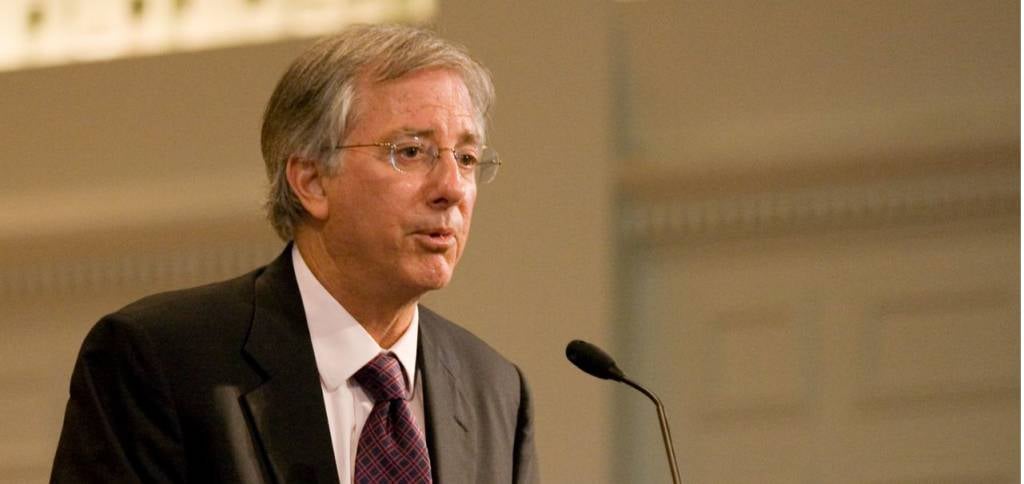US diplomat Dennis Ross criticized Obama’s approach to the Israeli-Palestinian conflict, but acknowledged that the president has responded well to Israel’s security needs.
President Obama at the Adas Israel synagogue in Washington. (AP/Jacquelyn Martin)
US diplomat and author Dennis Ross, who served as Middle East envoy under the Clinton administration, expressed strong disagreement with President Obama’s approach to the peace process, adding, however, that he deserves credit for respecting Israel’s security needs. The veteran diplomat, speaking on Voice of Israel radio, also suggested that Israel could do more to counter attempts at delegitimizing the Jewish state.
Regarding the peace process, Ross said that Obama has been overly one-sided, making demands of Israel while ignoring the lack of commitment on the side of the Palestinian Authority to pursue peace. In particular, he noted that the US made three major pushes for peace since 2000 and that each time, the PA either rejected the proposed parameters for an agreement or refused to comment on them.
“Obama would become more convincing if his questions on how to pursue peace wouldn’t focus so much on Israel,” Ross said. “If one is going to raise questions on why we don’t have peace at this point, the criticism has to be directed toward both sides. It can’t be directed only toward the Israelis. There can’t be questions only about Israeli responsibilities when there’s no reference to Palestinian responsibilities. Had the president reflected more on that in his comments [at Adas Israel synagogue in Washington recently], it would have resonated more here. If you look at the comments, they tend to be focused only on what Israel can do, not what the Palestinians can do or haven’t done.”
Ross argued that Obama had, in fact, undermined the peace process by allowing the PA to use settlement construction as an excuse not to negotiate. “Insisting on a complete freeze, including natural growth, established an objective that no Israeli government had carried out. Creating a standard that couldn’t be achieved gave the Palestinians and the Arabs an excuse to sit back and do nothing and say, ‘Until you deliver that, there is nothing for us to do.’”
At the same time, Ross said that Israel should be more explicit about its settlement policy, which would serve as a useful tool to combat criticism of Israel and expose the true intentions of those who seek to delegitimize Israel, such as the Boycott, Divestment and Sanctions movement.
“The problem at this point is the perception internationally that Israel is building everywhere in a way that suggests they are not committed to a two-state outcome,” he said, suggesting that Israel limit construction to settlement blocs and that it say so explicitly.
Ross said that Obama has not received sufficient recognition for his commitment to Israel’s security. “Whenever the issue has been related to Israel’s security needs, he has been exceedingly responsive, and has made that a kind of issue not to be questioned. So I think he doesn’t get some of the credit he deserves when it relates to what he’s been prepared to do in terms of standing by Israel on security question and security issues and providing Israel what it needs.”
Ross, who also served as the White House’s envoy to Iran, among other prominent diplomatic positions, stated that the Iranian nuclear agreement, as it now stands, does not provide adequate protection in the event that Iran violates the terms. “If we saw Iran moving to a nuclear weapon, it could trigger the use of force, or Israel could receive capabilities that would allow it to use force,” he warned.
By: Sara Abramowicz, United with Israel
